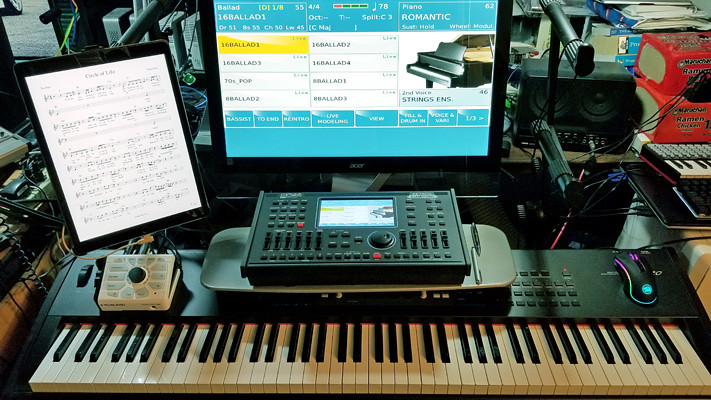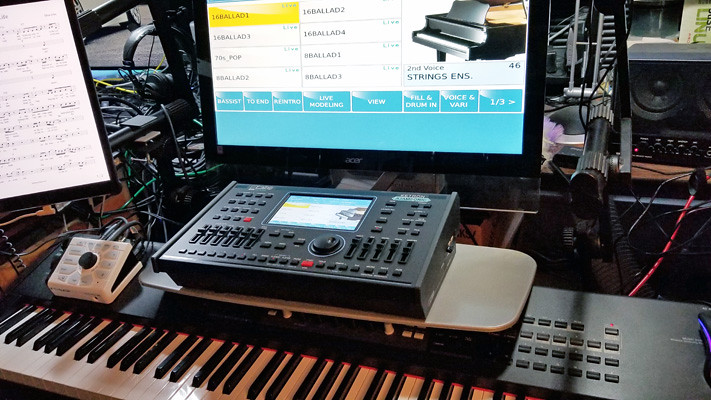The Ketron SD90 Pro Live module is quite a big module, 42.2x11.5x25.5cm (16.7x4.5x10.1 inches), about one third of the width of an 88-key keyboard, but not very heavy, about 4 Kg / 8 lbs. The initial impression of the unit is high quality fit and finish.


It takes about 46 seconds for the SD90 module to boot up, and about 13 seconds to shutdown. You do not have to press the power button for a few second in order to shut it down - briefly push the power button at the back of the right hand side and it starts the power off process.
The external video display of Ketron SD90 is much better than the Yamaha Genos or Korg Pa1000, up to 1680x1050p-60 resolution through DVI connection. The pictures and fonts on the external display are much smoother than competition. Any change to current external display parameters causes Ketron SD90 to reboot every time. The module does not support touch on external display.
The included power cable is very long, about 10 feet, which I like for its longer than normal reach.
The SD90 module has 3 USB slots for USB drive connections, and a SD card slot on the right side of the module. I found that the SD card slot supports only up to 32GB SDHC cards.
The module has 2 MIDI ins, MIDI 1 in is for GM playback, and MIDI 2 in is for external keyboard connection. The USB to host port at the back connects the SD90 module to a computer through a USB printer cable so the computer sees it as a GM2 audio device, similar to the Ketron SD1000 module. There are 4 template sets for the optional FS-13 footswitch connected to the 15-pin footswitch port at the back of the module. I am not using the sustain port of the SD90 module since I use the sustain pedal on the controller keyboard already. Since I already have a Ketron volume pedal, I will hook it up later to test its usefulness in expression.
I have not had time to play around in depth with the module yet. Overall the out-of-the-box experience is enjoyable. I am especially interested in the LauchPad function of this unit, which I think is a step ahead of competition.
There are things that I think can be improved:
1. The three Int/End buttons do not have built-in LEDs like variation A through D buttons.
2. Audio IN is mono by default - I prefer stereo audio inputs like the ones on Yamaha Genos and Korg Pa1000.
The above is just the summary of first impressions. It will take a lot more time in coming months to get familiar with this module.
Thanks,
Paul

